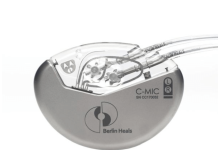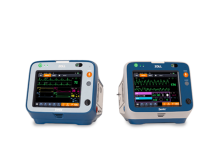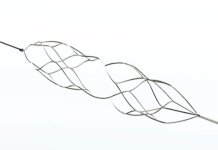Virtual Incision has received the US Food and Drug Administration (FDA) marketing authorisation of the MIRA Surgical System (MIRA) for colectomy procedures in adults.
MIRA is designed to be a compact and portable device that weighs less than one kilogram, which minimises its setup time, enabling any OR to be robot-ready within minutes.
Related: SeaStar’s device granted humanitarian exemption approval for children with AKI
According to the US medical technology manufacturer, MIRA is the world’s first miniaturised robotic-assisted surgery (miniRAS) device.
The MIRA device has been submitted through the FDA’s De Novo Classification process, a pathway designed to classify novel medical devices with no current legally marketed predicate.
The US FDA authorisation was based in part on findings from the company’s US Investigational Device Exemption (IDE) clinical study.
Virtual Incision president and CEO John Murphy said: “Today marks a turning point in surgical robotics as we have hit a significant milestone in making miniaturized robotic surgery a reality.
“I’m incredibly proud to see our efforts come to fruition. We extend our gratitude to the FDA for its thoughtful review of MIRA’s technology and our clinical evidence.
“Whether as a complement to the existing mainframes or as a stand-alone platform, miniaturization has the potential to accelerate the adoption of robotic-assisted surgery.”
Minimally invasive surgery (MIS) is a type of surgery that involves smaller incisions and has transformed surgical care with reduced pain, complications, and shorter recovery time.
The robotic-assisted surgery has further expanded the use of MIS for complex procedures, providing surgeons with more precision and control than conventional techniques.
However, operating rooms (ORs) in the US lack access to the technology, due to complex logistics such as dedicated OR space, trained staff, and a substantial cost for the equipment.
Virtual Incision said that MIRA’s tray-to-table design offers healthcare facilities the advantages of robotic surgery without requiring them to organise the OR around the device.
The company will start commercialising MIRA in limited centres across the US, through its First Access Programme, with plans to increase production and expand to additional sites.
In addition, a new iteration of its technology is in currently in the design phase and is expected to be used in a first-in-human study outside the US later this year, said Virtual Incision.
Virtual Incision chief medical officer Piet Hinoul said: “Colectomy is one of the most complex multi-quadrant abdominal procedures with nearly 50% still being performed as open surgery. Data from our IDE clinical study demonstrated that MIRA can successfully be used to mobilise the colon in a minimally invasive way.
“Starting with a difficult multi-quadrant procedure like a colectomy presents an exciting opportunity for us to address a high unmet need before we expand into other indications.
“We’re thankful to the investigators and patients who participated in our IDE clinical study that propelled us to marketing authorisation.”




